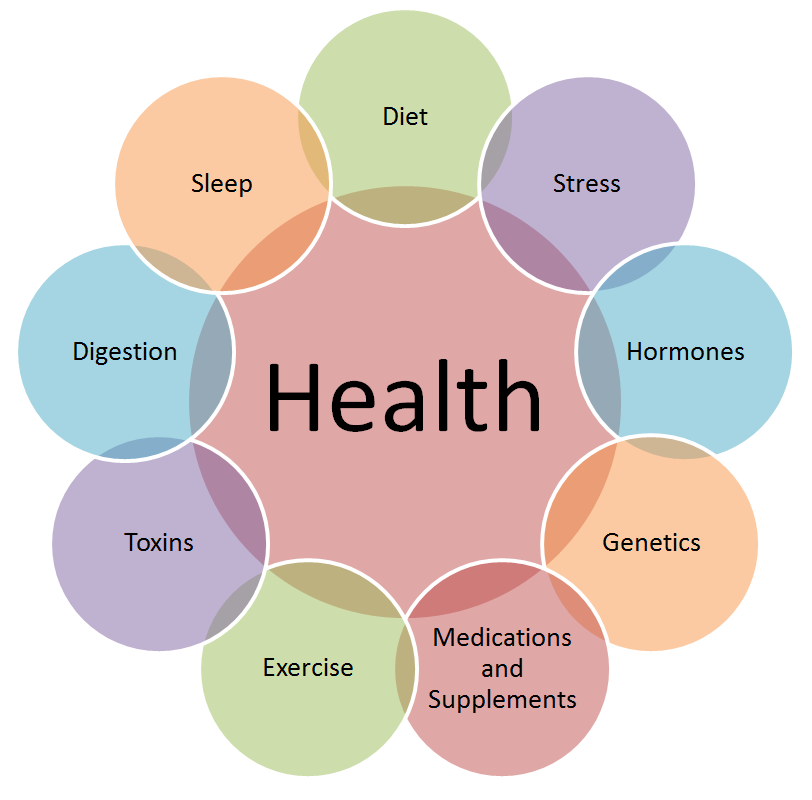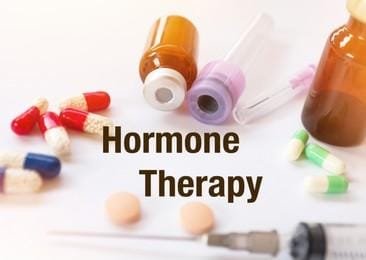Hormonal health and metabolism are deeply interconnected, playing a vital role in energy levels, weight management, mood, and overall well-being. When hormones are out of balance, it can lead to issues like fatigue, weight gain, mood swings, and even chronic health conditions. Similarly, a sluggish metabolism can make it difficult to maintain a healthy weight and feel energized throughout the day.
The good news is that certain supplements can support both hormonal health and metabolism, helping you feel your best. In this article, we’ll explore the best supplements for optimizing these critical aspects of health, backed by science and expert recommendations.
Understanding Hormonal Health and Metabolism
Hormones are chemical messengers that regulate nearly every bodily function, from growth and reproduction to metabolism and mood. Key hormones like insulin, thyroid hormones, cortisol, estrogen, progesterone, and testosterone must be in balance for optimal health.
Metabolism, on the other hand, refers to the processes by which your body converts food into energy. A healthy metabolism ensures that you have the energy to perform daily activities and maintain a healthy weight.
When hormones are imbalanced, it can slow down metabolism, leading to weight gain, fatigue, and other health issues. Conversely, a sluggish metabolism can disrupt hormone production, creating a vicious cycle.
Supplements can play a crucial role in breaking this cycle by supporting hormone production, regulating metabolism, and promoting overall health. Let’s dive into the best options.
1. Ashwagandha
Ashwagandha is an adaptogenic herb that has been used for centuries in Ayurvedic medicine to combat stress and support hormonal balance. It’s particularly effective for regulating cortisol, the stress hormone, which can wreak havoc on metabolism and other hormones when elevated.
Benefits for Hormonal Health and Metabolism:
- Reduces cortisol levels, promoting a calmer state of mind.
- Supports thyroid function, which is essential for metabolism.
- Enhances energy levels and reduces fatigue.
How to Take It:
Ashwagandha is available in capsule, powder, or tincture form. A typical dose is 300-500 mg per day.
2. Magnesium
Magnesium is a vital mineral involved in over 300 biochemical reactions in the body, including hormone production and metabolism. Many people are deficient in magnesium due to poor diet and stress.
Benefits for Hormonal Health and Metabolism:
- Supports the production of thyroid hormones, which regulate metabolism.
- Helps balance blood sugar levels by improving insulin sensitivity.
- Reduces stress and promotes better sleep, both of which are crucial for hormonal balance.
How to Take It:
Magnesium supplements come in various forms, such as magnesium citrate, glycinate, or oxide. A daily dose of 200-400 mg is generally recommended.
3. Omega-3 Fatty Acids
Omega-3 fatty acids, found in fatty fish, flaxseeds, and walnuts, are essential for hormone production and metabolic health. They help reduce inflammation, which can disrupt hormone balance and slow metabolism.
Benefits for Hormonal Health and Metabolism:
- Supports brain health and mood regulation.
- Reduces inflammation, which can interfere with hormone production.
- Improves insulin sensitivity and supports healthy weight management.
How to Take It:
Fish oil or algae-based omega-3 supplements are widely available. Aim for 1,000-2,000 mg of combined EPA and DHA per day.
4. Vitamin D
Vitamin D is often referred to as the “sunshine vitamin” because it’s produced in the skin in response to sunlight. It plays a critical role in hormone production, including thyroid and sex hormones.
Benefits for Hormonal Health and Metabolism:
- Supports thyroid function and metabolism.
- Enhances mood and reduces symptoms of depression.
- Improves insulin sensitivity and blood sugar regulation.
How to Take It:
Vitamin D3 is the most bioavailable form. A typical dose is 1,000-4,000 IU per day, depending on your levels.
5. Probiotics
Gut health is closely linked to hormonal health and metabolism. Probiotics, the beneficial bacteria in your gut, play a key role in regulating hormones like insulin and cortisol.
Benefits for Hormonal Health and Metabolism:
- Improves gut health, which is essential for hormone production and metabolism.
- Reduces inflammation and supports immune function.
- Helps regulate appetite and weight management.
How to Take It:
Look for a high-quality probiotic supplement with multiple strains and at least 10 billion CFUs. Take it daily with meals.
5. Probiotics
Gut health is closely linked to hormonal health and metabolism. Probiotics, the beneficial bacteria in your gut, play a key role in regulating hormones like insulin and cortisol.
Benefits for Hormonal Health and Metabolism:
- Improves gut health, which is essential for hormone production and metabolism.
- Reduces inflammation and supports immune function.
- Helps regulate appetite and weight management.
How to Take It:
Look for a high-quality probiotic supplement with multiple strains and at least 10 billion CFUs. Take it daily with meals.
6. B Vitamins
B vitamins, including B6, B12, and folate, are essential for energy production and hormone regulation. They help convert food into energy and support the adrenal glands, which produce stress hormones.
Benefits for Hormonal Health and Metabolism:
- Supports energy production and reduces fatigue.
- Helps regulate cortisol and other stress hormones.
- Supports thyroid function and metabolism.
How to Take It:
B-complex supplements are widely available. Follow the recommended dosage on the label.
7. Zinc
Zinc is a trace mineral that plays a critical role in hormone production, including thyroid hormones and testosterone. It’s also essential for immune function and metabolism.
Benefits for Hormonal Health and Metabolism:
- Supports thyroid function and metabolism.
- Enhances immune function and reduces inflammation.
- Improves testosterone levels in men and supports reproductive health in women.
How to Take It:
Zinc supplements are available in various forms, such as zinc gluconate or citrate. A typical dose is 15-30 mg per day.
8. Maca Root
Maca root is a Peruvian superfood known for its hormone-balancing properties. It’s particularly beneficial for regulating estrogen, progesterone, and testosterone levels.
Benefits for Hormonal Health and Metabolism:
- Supports hormone balance in both men and women.
- Enhances energy levels and reduces fatigue.
- Improves libido and sexual health.
How to Take It:
Maca root is available in powder or capsule form. A typical dose is 1,500-3,000 mg per day.
9. Green Tea Extract
Green tea extract is rich in antioxidants called catechins, which support metabolism and hormonal health. It’s particularly effective for weight management and energy production.
Benefits for Hormonal Health and Metabolism:
- Boosts metabolism and supports fat burning.
- Improves insulin sensitivity and blood sugar regulation.
- Reduces inflammation and supports overall health.
How to Take It:
Green tea extract is available in capsule form. A typical dose is 400-500 mg per day.
10. Adaptogenic Herbs (Rhodiola, Holy Basil)
Adaptogenic herbs like rhodiola and holy basil help the body adapt to stress, which is essential for hormonal balance and metabolism.
Benefits for Hormonal Health and Metabolism:
- Reduces cortisol levels and supports adrenal health.
- Enhances energy levels and reduces fatigue.
- Improves mood and cognitive function.
How to Take It:
These herbs are available in capsule or tincture form. Follow the recommended dosage on the label.
Lifestyle Tips to Enhance Supplement Benefits
While supplements can be incredibly effective, they work best when combined with a healthy lifestyle. Here are some tips to maximize their benefits:
- Eat a Balanced Diet: Focus on whole, nutrient-dense foods that support hormone production and metabolism.
- Exercise Regularly: Incorporate both cardio and strength training to boost metabolism and support hormonal health.
- Manage Stress: Practice stress-reducing techniques like meditation, yoga, or deep breathing.
- Get Quality Sleep: Aim for 7-9 hours of sleep per night to support hormone regulation and recovery.
- Stay Hydrated: Drink plenty of water to support metabolic processes and overall health.
Conclusion: Take Charge of Your Hormonal Health and Metabolism
Balancing hormones and optimizing metabolism are essential for feeling your best and maintaining long-term health. The right supplements, combined with a healthy lifestyle, can make a significant difference in your energy levels, weight management, and overall well-being.
If you’re considering adding supplements to your routine, consult with a healthcare provider like myself, Dr. Zaar, to ensure they’re right for you. With the right approach, you can take charge of your hormonal health and metabolism, paving the way for a healthier, more vibrant life.
If you learn more about Hormonal Health. Please visit drzaar.com










